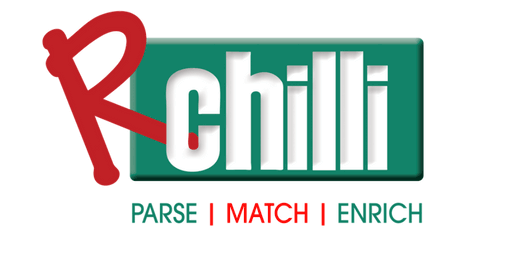Description

DeepSense

RChilli
Comprehensive Overview: DeepSense vs RChilli
DeepSense and RChilli are distinct technologies that serve the recruitment and human resources (HR) sectors, yet they target slightly different aspects of these fields.
a) Primary Functions and Target Markets
DeepSense:
- Primary Functions: DeepSense is an AI-powered tool designed to analyze social media and other publicly available data to generate personality insights. It utilizes natural language processing (NLP) and machine learning algorithms to profile candidates based on their online behavior and communication style. The tool aims to provide deeper insights into a candidate's personality traits, soft skills, and cultural fit within an organization.
- Target Markets: DeepSense primarily targets recruitment professionals, HR departments, and organizations that are interested in enhancing their recruitment processes by integrating personality assessments. It is particularly useful for industries where the cultural fit and candidate personality are crucial factors, such as customer service, sales, and leadership roles.
RChilli:
- Primary Functions: RChilli offers a suite of tools focused on resume parsing, semantic search & matching, and data enrichment. Its solutions are designed to automate the extraction of candidate information from resumes, facilitate fast and accurate candidate-job matching, and enrich recruitment databases with structured data.
- Target Markets: RChilli targets staffing agencies, HR software solution providers, and enterprise HR departments. It serves industries that handle high volumes of resumes and require efficient sorting and matching processes, such as IT, engineering, healthcare, and finance.
b) Market Share and User Base
DeepSense:
- Market Share: As a niche product within the broader HR tech and recruitment analytics domain, DeepSense may not have as extensive a market share compared to more established tools like resume parsing and matching software. However, it appeals to organizations seeking advanced analytics for deeper candidate evaluation.
- User Base: DeepSense attracts innovative HR teams and recruiters interested in incorporating AI-driven personality assessments. Its user base may be smaller but consists of organizations focused on adopting cutting-edge recruitment technologies.
RChilli:
- Market Share: RChilli is a well-known provider in the resume parsing space, with a significant presence in the recruitment tech market. Its solutions are integrated into various ATS (Applicant Tracking Systems) and HR platforms, giving it a broad market reach.
- User Base: RChilli’s user base includes a wide range of staffing agencies, HR software vendors, and large organizations who require streamlined and automated resume processing capabilities.
c) Key Differentiating Factors
DeepSense:
- Innovative Approach: DeepSense’s AI-driven personality insights set it apart from more conventional recruitment tools. Its ability to analyze social media data offers a unique angle to candidate assessment, focusing on personality and soft skills.
- Cultural Fit Evaluation: The focus on corporate culture and personality alignment differentiates DeepSense in what it can offer compared to traditional skills-based assessments.
RChilli:
- Technical Focus: RChilli is primarily focused on technical data extraction and processing, offering advanced resume parsing capabilities that convert unstructured resume data into structured formats.
- Integration Capabilities: RChilli’s solutions are widely integrated into existing ATS and HR platforms, making it a more scalable choice for organizations that need a plug-and-play solution for resume management.
- Comprehensive Tools: Beyond parsing, RChilli offers end-to-end solutions including semantic search and data enrichment, providing a more comprehensive package for recruitment automation.
In summary, while DeepSense and RChilli both operate within the HR tech space, their focuses and functionalities cater to different aspects of the recruitment process: DeepSense on personality insights and cultural fit, and RChilli on resume parsing and database management. This differentiation impacts their respective market share, user base, and integration in the industry.
Contact Info

Year founded :
Not Available
Not Available
Not Available
Spain
http://www.linkedin.com/company/deepsense

Year founded :
Not Available
Not Available
Not Available
Not Available
Not Available
Feature Similarity Breakdown: DeepSense, RChilli
As of my last update in October 2023, let's explore the feature similarities and differences between DeepSense and RChilli, two platforms often used for recruitment intelligence and HR technology solutions. Note that the comparisons might evolve with newer updates, so it's always a good idea to check their official websites or contact their sales teams for the latest information.
a) Core Features in Common
-
AI-Driven Insights:
- Both platforms leverage AI to provide insights that help streamline the recruitment process and improve decision-making.
-
Data Parsing and Analysis:
- They include capabilities for parsing and analyzing data from resumes or job descriptions to extract relevant information.
-
Integration with HR Systems:
- Both DeepSense and RChilli offer integrations with various Applicant Tracking Systems (ATS) and other HR software, facilitating seamless workflows.
-
Enhancing Candidate Experience:
- Tools or features are geared towards improving the candidate experience through streamlined processes and better matches.
-
Scalability:
- Designed to scale with the organization's growth, handling large volumes of candidate data effectively.
b) User Interface Comparison
-
DeepSense:
- Known for a modern and intuitive user interface, focusing on minimalism and ease of navigation. It tends to emphasize visual analytics and dashboards that provide quick insights into candidate data and system performance.
-
RChilli:
- Offers a more traditional yet user-friendly interface with a focus on comprehensive data presentation. It provides detailed reports and straightforward navigation that allows users to access functionality quickly, suitable for teams who want immediate and easy access to parsing capabilities.
c) Unique Features
-
DeepSense:
- Predictive Analytics: Provides deep predictive capabilities that can anticipate trends or candidate success beyond simple parsing.
- Behavioral Analysis: Offers insights into candidate personality traits and potential cultural fit through behavioral data analytics.
-
RChilli:
- Extensive Parsing Features: Known for its in-depth parsing engine, RChilli offers extensive support for multiple formats and languages, often standing out with its diverse data extraction capabilities.
- Configuration Flexibility: Offers high customization capabilities in their parsing tools, allowing businesses to tailor parsing fields and outputs according to industry-specific needs.
In conclusion, both DeepSense and RChilli have robust features that cater to the modern recruitment landscape. However, DeepSense might appeal more to users looking for advanced analytics and predictive insights, whereas RChilli is a strong choice for those needing extensive parsing capabilities and flexibility. It’s crucial to evaluate these tools based on your specific organizational needs and strategic objectives.
Features

Not Available

Not Available
Best Fit Use Cases: DeepSense, RChilli
DeepSense and RChilli cater to specific needs within the business and hiring ecosystems, each offering distinct advantages for particular use cases and industry requirements.
a) DeepSense
Use Cases for DeepSense:
-
Predictive Analytics for Marketing and Sales:
- Ideal for businesses that rely heavily on customer interaction and require insight-driven strategies to enhance customer engagement and conversion rates. Companies in e-commerce, retail, and consumer services would benefit greatly from DeepSense's capabilities.
-
Customer Insights Enrichment:
- Businesses aiming to gain deeper insights into their customer profiles to tailor personalized marketing campaigns and user experiences could leverage DeepSense's predictive analytics models.
-
Human Resources and Talent Management:
- Organizations seeking to understand employee behavior and retention patterns might use DeepSense to gain predictive insights that help design better HR policies and improve workplace dynamics.
-
Product Development and Innovation:
- Companies in technology development or consumer goods looking to forecast trends and customer preferences could use DeepSense to guide product enhancements and innovations.
Industry Verticals:
- Industries like e-commerce, retail, consumer products, financial services, and technology could extract significant value due to their reliance on data-driven decision-making and the need to understand complex consumer behavior patterns.
Company Size:
- Medium to large enterprises with the capability to integrate data analytics into their operations and those looking to leverage advanced AI models for strategic insights would find DeepSense advantageous.
b) RChilli
Use Cases for RChilli:
-
Resume Parsing for Recruitment:
- Companies and staffing agencies that process large volumes of resumes can use RChilli's automatic parsing functionality to streamline their recruitment processes.
-
Applicant Tracking System (ATS) Enhancement:
- RChilli can integrate with existing ATS platforms to enhance data extraction capabilities, making it perfect for HR departments seeking to improve efficiency in candidate selection.
-
Job Boards and Online Staffing Platforms:
- Ideal for platforms that host job listings and require automated solutions to match candidate data with job descriptions, ensuring quick and accurate job-candidate alignment.
-
Talent Management Solutions:
- Organizations developing talent pools or managing large-scale talent databases can use RChilli to manage and categorize applicant information more effectively.
Industry Verticals:
- Primarily benefits recruitment agencies, HR departments, job portals, and any organization with a high turnover or those constantly engaging in recruitment activities.
Company Size:
- Scalable for use by small to large enterprises. Particularly beneficial for large organizations or HR firms that deal with thousands of applicants, thereby requiring automated solutions to manage and interpret resume data efficiently.
d) Catering to Different Industry Verticals and Company Sizes
-
DeepSense targets industries where understanding and predicting customer behavior can dramatically influence consumer engagement and where data interpretation leads to strategic business advantages. Consequently, it's tailored for medium to large enterprises capable of leveraging big data for comprehensive business insights.
-
RChilli, on the other hand, serves industries centered around talent acquisition and management. It's suitable for any company size, but particularly impactful for larger enterprises with complex hiring needs and high volumes of applicant data. RChilli facilitates quick, accurate data processing within HR operations, making it indispensable to sectors like recruitment, staffing, and HR tech.
In summary, while DeepSense is best suited for analytics-driven insights across various sectors aiming to understand customer behavior, RChilli excels in streamlining and automating the recruitment process across diverse industry needs.
Pricing

Pricing Not Available

Pricing Not Available
Metrics History
Metrics History
Comparing undefined across companies
Conclusion & Final Verdict: DeepSense vs RChilli
To provide a conclusion and final verdict for DeepSense and RChilli, it's important to analyze each product based on its features, performance, and user needs. Below is an assessment and comparison of both:
Conclusion:
Both DeepSense and RChilli provide valuable solutions in their respective domains, often complementing rather than directly competing with each other. DeepSense typically offers advanced analytical capabilities, while RChilli is known for its robust parsing and integration features. The best choice depends largely on the specific needs and priorities of the user.
a) Best Overall Value:
- DeepSense: Offers the best overall value for organizations focusing on predictive analytics, decision-making insights, and AI-driven strategies. Its strength lies in data analysis and interpretation.
- RChilli: Provides the best value for companies needing efficient and accurate resume parsing, data extraction, and seamless integration with HR platforms. Its services are optimized for recruitment processes.
b) Pros and Cons:
-
DeepSense:
- Pros:
- Advanced AI capabilities for in-depth data analysis.
- Strong focus on predictive analytics and intelligent insights.
- Ideal for companies emphasizing strategic decision-making.
- Cons:
- May be complex to implement and require specialized personnel.
- Potentially higher costs due to advanced capabilities.
- Suitable primarily for companies with substantial data analysis needs.
- Pros:
-
RChilli:
- Pros:
- Efficient and accurate parsing of resumes and job applications.
- Easy integration with existing HR systems and workflows.
- Cost-effective for improving recruitment processes.
- Cons:
- Primarily focused on recruitment-related solutions, thus less versatile outside HR needs.
- May not offer in-depth analytics compared to solutions like DeepSense.
- Dependency on specific integrations, which might require customization.
- Pros:
c) Recommendations:
Users deciding between DeepSense and RChilli should consider their primary business objectives. For businesses that require robust data analytics and want to leverage AI for broader strategic insights, DeepSense would be more beneficial. Conversely, for companies focused on optimizing their recruitment pipeline and requiring an efficient data parsing solution, RChilli is the more suitable choice.
Specific Recommendations:
- Assess Needs: Identify whether your primary need is data analytics or recruitment optimization.
- Budget Considerations: Ensure either solution fits within your budget constraints, considering potential additional customization costs.
- Integration Capabilities: Check compatibility with your existing systems, particularly if choosing RChilli for its integration strengths.
- Scalability and Support: Evaluate the scalability of each product and the level of customer support offered.
In summary, the decision should align with your organizational goals and technical requirements, ensuring the chosen product delivers not only immediate but also long-term value.
Add to compare
Add similar companies



